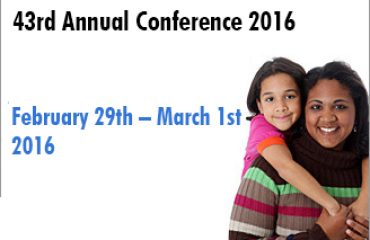The American Academy of Pediatrics has joined autism advocacy groups in urging continued universal screening for autism at 18 and 24 months, in response to a call, by the US Preventive Services Task Force, for more research on its benefits.
“The AAP remains committed to its recommendation for the timely screening and identification of children who would benefit from early intervention and treatment,” the academy says in its statement. “Autism spectrum disorder (ASD) has a tremendous impact on families, affecting an estimated 1 in 68 children in the U.S. Because early identification and referral for appropriate intervention are critical to ensuring that children with autism have access to effective therapies, the American Academy of Pediatrics recommends all children be screened for ASD at ages 18 and 24 months, along with regular developmental surveillance.”
The Preventive Services Task Force reviews the scientific evidence behind recommendations for a broad variety of healthcare screening tests, from routine blood work to mammograms. It based its statement on a review of published research into the effectiveness of universal early screening for autism and the benefits of early intervention.
The review found:
* Significant support for the effectiveness of early screening for autism. This screening can be done in a few minutes during a toddler’s well-child checkup.
* Significant evidence of the benefits of high-quality early intervention programs for toddlers and preschoolers with autism.
Nonetheless, the task force noted a lack of studies that looked at the combination of universal early screening and early intervention services. To date, early-intervention studies have not included children who were screened for autism in the absence of a specific concern. Instead they have focused on children diagnosed with autism after concerns about developmental delays or other “red flag” behaviors, or because they were in a high-risk group. The latter includes the younger siblings of children diagnosed with autism. These “baby sibs” are considered at high risk because autism tends to run in families.
As a result of this gap in research, the task force stated that, at present, evidence was “inconclusive” on the benefits of universal screening for autism at 18 and 24 months. In its statement, the task force made clear that it was not recommending against universal screening, but only calling for more research.
Zachary Warren, a clinical psychologist and autism researcher at Vanderbilt University Medical Center, was one of the experts who wrote the scientific review on which the task force based its statement. He voiced strong concerns over the conclusion of the task force and how it would be interpreted.
“It appears that the [task force] used a very rigid approach in evaluating the evidence for screening,” he says. “It is my personal opinion that failing to screen for ASD is a practice that lacks both clinical perspective and common sense. It would be tragic if clinicians limit their use of screening tools for ASD in clinical practice based on this statement.”
In a jointly issued statement, Autism Speaks and the Autism Science Foundation write:
The ambiguity of the statement offered by the US Preventative Services Task Force on autism screening is troubling and may be easily misinterpreted. … Screening leads to earlier identification of autism and opportunities for early intervention, which improves the lives of children with the disorder.”
